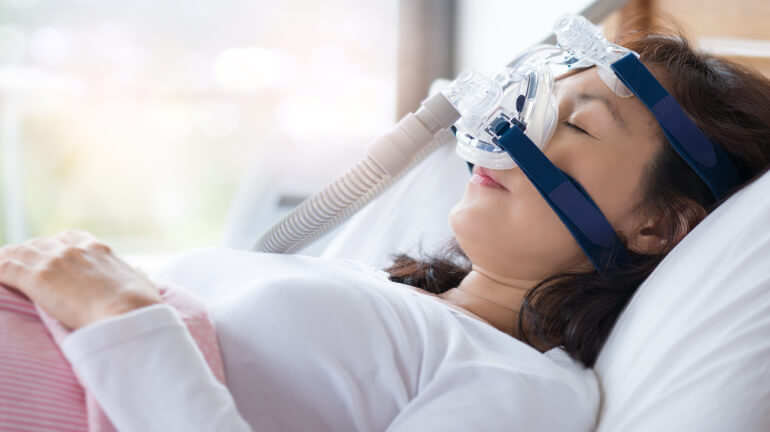Does Sleep Apnea Affect Pregnancy?
Pregnancy is an exciting and challenging time in a woman’s life. While most women are aware of the physical changes that occur during pregnancy, such as weight gain and morning sickness, they may not be as familiar with the potential health complications that can arise. One such complication is sleep apnea, a common sleep disorder that affects both men and women. Sleep apnea during pregnancy can be a serious concern for both the mother and the developing fetus, and it’s important to be aware of the symptoms and available treatments. Our Wake Forest,NC sleep specialist, Dr. Craig Winkelmann can help you improve your sleep quality.


The Signs of Sleep Apnea
Sleep apnea can cause secondary health conditions if left untreated, so it’s important to be aware of its symptoms. Patients who have a family history of sleep apnea, are overweight, or have a large neck circumference are at a higher risk of developing a sleep disorder.
Contact Dr. Winklemann if you notice any of the following sleep apnea signs:
- Snoring
- Frequently waking up throughout the night
- Gasping for air in the middle of the night
- Feeling tired throughout the day
- Increased irritability
- Difficulty concentrating
Sleep Apnea Can Harm You and Your Baby
Sleep apnea not only affects you and your body, but your unborn child’s well-being too. Since your body provides nutrients for your baby, a sudden change in oxygen or blood pressure can cause them to develop problems. Side effects of sleep apnea include heart disease, high blood pressure, and diabetes.
Pregnant women with sleep apnea may experience major health risk factors, such as:
- Gestational diabetes – an increased level of glucose in the blood
- Preeclampsia – high blood pressure during pregnancy
- Lower-blood oxygen levels
- Maternal obesity
- Increased risk of cesarean section
- Pulmonary edema – excess fluid in the lungs
- Increased risk of the newborn needing to be admitted into the neonatal intensive care unit


Effective Treatment Solutions
If you’ve received a sleep apnea diagnosis by your doctor, the next step is seeking proper treatment as soon as possible. The traditional treatment option is continuous positive airway pressure (CPAP), but many patients find that alternative treatments, such as oral appliances, are better suited for them.
Dr. Winkelmann will talk to you about the treatment options your physician provided you, and explain the benefits of each in detail. He’ll also suggest that you maintain a regular exercise routine to help improve your sleep and will address any questions or concerns you may have.
Frequently Asked Questions
Can sleep apnea harm the developing fetus?
Yes, sleep apnea during pregnancy can harm the developing fetus. The condition is associated with an increased risk of preterm birth, low birth weight, and fetal growth restriction. Sleep apnea can also contribute to the development of preeclampsia, a potentially life-threatening condition that can harm both the mother and fetus.
How is sleep apnea diagnosed in pregnant women?
Sleep apnea is typically diagnosed through a sleep study, which involves monitoring the individual’s breathing and other bodily functions during sleep. However, due to the risks associated with sleep studies during pregnancy, doctors may use alternative methods to diagnose sleep apnea, such as home sleep tests or daytime sleepiness assessments.
Can sleep apnea during pregnancy be prevented?
While there is no guaranteed way to prevent sleep apnea during pregnancy, there are steps that women can take to reduce their risk. These include maintaining a healthy weight, sleeping on one’s side, avoiding alcohol and sedatives, and treating underlying medical conditions such as allergies and asthma.
How long does sleep apnea typically last after pregnancy?
For many women, sleep apnea resolves after giving birth and returning to their pre-pregnancy weight. However, some women may continue to experience sleep apnea even after delivery. In these cases, ongoing treatment may be necessary to manage the condition and prevent future complications.
Visit Dr. Winkelmann for Sleep Solutions
If you’re worried that you’re experiencing sleep apnea during your pregnancy, contact our Wake Forest office to schedule a consultation with Dr. Winkelmann. Give us a call at (984) 237-1013 or fill out our convenient online contact form and we’ll get back to you as soon as possible.
